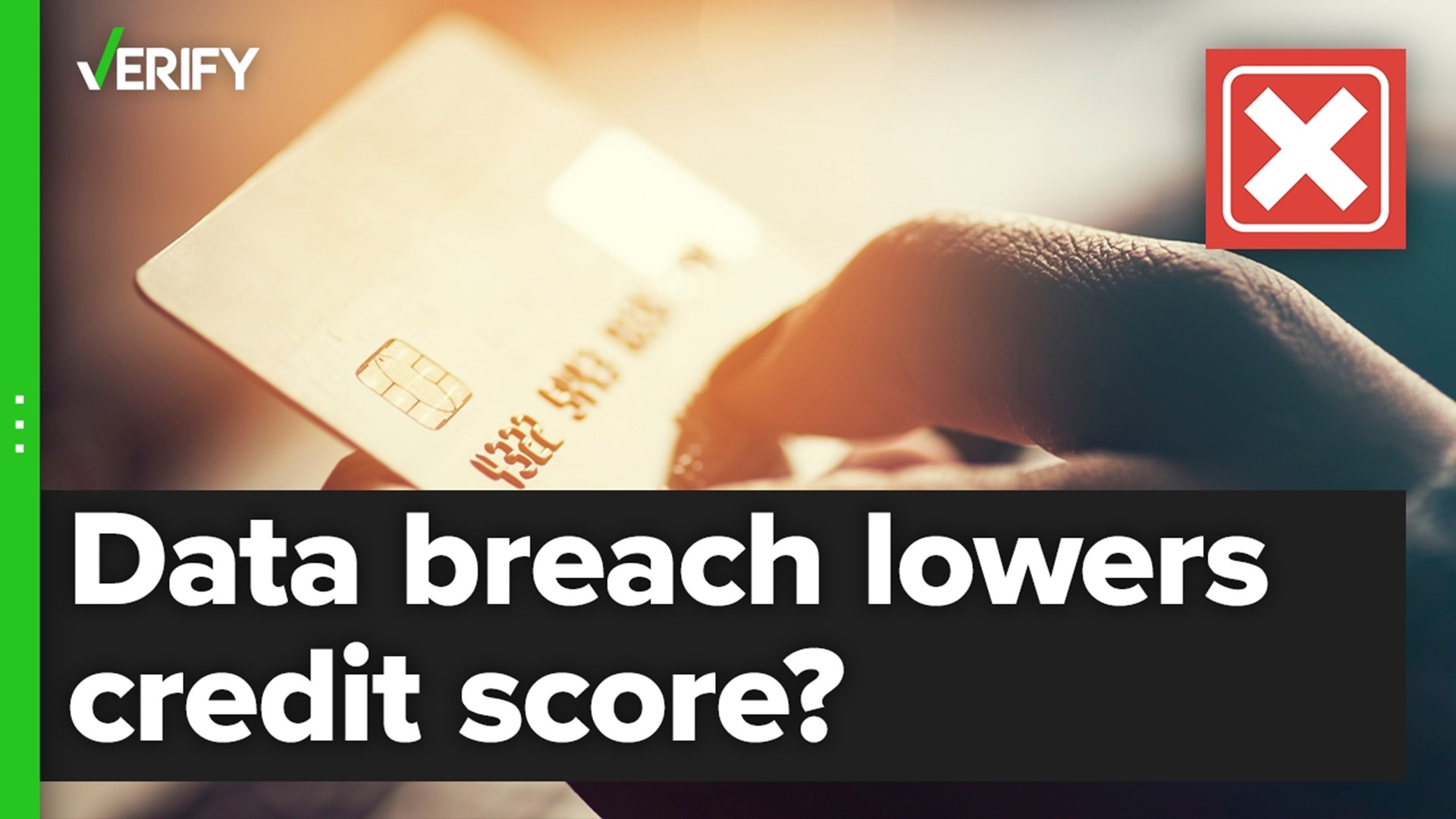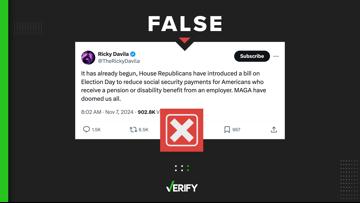Millions of Americans have had their personal information compromised this year in various data breaches.
One VERIFY reader told us a family member’s credit score dropped after they were notified that their information was compromised in a data breach. The reader wondered if there is a connection.
“If a company has a data breach and I’m on the list of possibly compromised customers, will my credit score drop just based on that?” they asked.
THE QUESTION
Does having your data compromised in a breach automatically lower your credit score?
THE SOURCES
- FICO
- VantageScore
- Sara Rathner, personal finance and credit cards expert at NerdWallet
- Identity Guard, an identity theft protection company
- Federal Trade Commission (FTC)
THE ANSWER
No, having your data compromised in a breach doesn’t automatically lower your credit score.
WHAT WE FOUND
If your information is compromised in a data breach, that doesn’t mean your credit score will automatically take a hit, experts told VERIFY.
“A data breach is not a guarantee that your credit score will be affected,” NerdWallet expert Sara Rathner said. “What it means is that your information has potentially fallen into the wrong hands, but that might be as far as it goes if your information doesn’t end up getting used by a scammer.”
More from VERIFY: Yes, the Equifax data breach settlement email and website are real
A credit score is a number from 300 to 850 that estimates how likely you are to repay borrowed money and pay bills. Scores of 690 or higher are generally considered good credit.
FICO, a credit scoring company, says it uses your payment history, the amount owed, the length of your credit history, recent credit applications and the types of credit you have to calculate your score.
Another credit scoring company called VantageScore looks at your payment history, depth of credit, credit utilization, balances, recent credit and available credit to calculate your score.
Some of these factors carry more weight than others. But the companies don’t factor whether you’ve been a victim of a data breach into your credit score.
A spokesperson for FICO told VERIFY that its score “is only assessing credit risk, not fraud risk.”
However, a significant drop in your credit score following a data breach could be an indication that a scammer or hacker used your name to open a new line of credit.
If you think you’ve fallen victim to identity theft, experts recommend that you request a credit freeze with the three credit bureaus – Experian, TransUnion, and Equifax.
The Federal Trade Commission (FTC) says a credit freeze ensures that someone won’t be able to open a new credit account in your name while the freeze is in place. A credit freeze is free and lasts until you remove it.
You can also place a fraud alert on your credit report. This will make it more difficult for someone to open a new credit account in your name, according to the FTC.
A fraud alert is free and lasts one year unless you renew it for longer. You can place a fraud alert on your credit report by contacting any one of the three credit bureaus.
Rathner also recommends keeping an eye on your credit reports, which you can access weekly for free online without hurting your credit score, and reporting any suspicious activity to the credit bureaus. You may also be eligible for free credit monitoring as a result of the data breach, she added.
Anyone who is a victim of a data breach should also keep an eye on their bank and credit card statements for fraudulent withdrawals or charges, and report them to their bank immediately, Rathner said.
For more tips to protect your personal information, click here.












